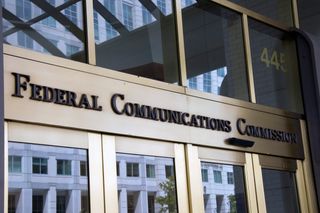FCC's Johnson Makes Case for Preemption

Likening misguided state and local regs to a multi-headed mythological beast in need of taming, FCC General Counsel Tom Johnson made the case for preemption this week in a speech to TaxWatch, a nonprofit watchdog group that focuses on the real-world consequences of tax policies, saying preemption helped close the digital divide.
He said past FCC's have made "horrible" predictions about how to allocate spectrum that may have delayed the advent of FM radio and cellular telephony for decades, mistakes that come at a "tremendous cost" to the economy.
Related: Supremes Deny Appeal of Charter VoIP Decision
He said the Pai FCC was working to change that by identifying bad regs and repealing outdated and burdensome rules, resulting in allowing for more flexible use of spectrum, for example.
He argued that deregulation, bu eliminating unnecessary costs on the economy, was helping close the digital divide by incentivizing, and thus facilitating, network buildouts.
One major tool in that toolkit is preemption, he said, which identifies state and local regs that impede deployment, and so are not in the public interest.
He conceded that states and municipalities have important roles in regulating communications networks, but not when they exceed their authority or put narrow self interest over the national interest.
Multichannel Newsletter
The smarter way to stay on top of the multichannel video marketplace. Sign up below.
Related: FCC Preempts Inside Wiring Ordinance
In that case, he said, local and state regs can resemble Cerberus, the three-headed dog who guarded the gates of Hell. Those heads would be hidden taxes, regressive taxes and rent-seeking taxes rather than those serving a legitimate government purpose.
Enter the FCC to minimize the unfairness via preemption, creating a national rule that, smites the three-headed monster (he did not suggest chairman Pai was playing Heracles in that scenario).
Johnson pointed to recent Pai FCC examples of preemption, including 1) its recent decision to make it clear that local franchising authorities had to count in-kind contributions toward the 5% cap on fees; 2) preventing excessive fees for applications to site 5G facilities; and 3) classifying texting as an information service to help prevent state utility commissions--specifically California--from imposing a text tax.
He pointed out that the FCC was currently battling challenges to both the cable franchise fee decision and the 5G "excessive fees" decision in federal court (the Ninth and Sixth Circuits), and vowed to continue to fight for those reforms.
Contributing editor John Eggerton has been an editor and/or writer on media regulation, legislation and policy for over four decades, including covering the FCC, FTC, Congress, the major media trade associations, and the federal courts. In addition to Multichannel News and Broadcasting + Cable, his work has appeared in Radio World, TV Technology, TV Fax, This Week in Consumer Electronics, Variety and the Encyclopedia Britannica.

